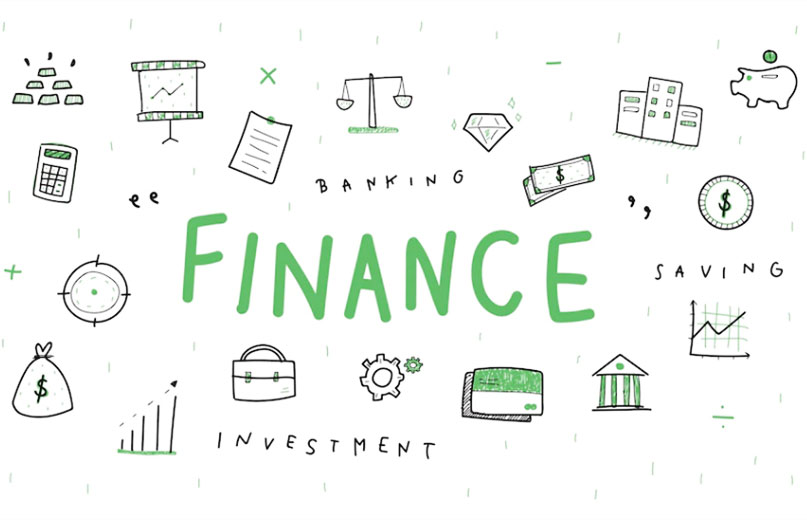
- 389 Views
- Carding Magazine
Financial Terms That Everyone Should Know
Even though finance is a crucial part of every adult’s life, most of us are economically clueless as we leave the education system – which is meant to prepare us for life in the real world.
Therefore, the responsibility falls to us as adults to become financially savvy and educate ourselves with articles, books and explanatory videos to aid our quest to achieve financial literacy.
With this in mind, we’ve compiled a list of financial terms that everyone should know and understand to navigate the finance world successfully.
Inflation.
Inflation measures the rate that the overall price of products and services increases (or decreases), with banks forecasting a general predicted growth of around 1-3% per year in most countries, including the UK, US and China.
Compound interest.
A type of interest that’s earned on both a deposited – or borrowed – sum of money and the interest that may accumulate on the sum over time.
So, when a person saves money, their compound interest is the interest they earn on both the original sum and any interest that this sum propagates.
However, after taking out a loan and incurring debt, the compound interest is the interest earned on both the original loan amount and the interest accumulated over time, which the borrower must payback.
Interest rate.
A term most commonly used when banking, the interest rate, is the percentage interest a bank pays an individual for keeping a sum of money there.
Fixed-Rate Mortgage
A mortgage that carries a fixed interest rate for the entire life of the loan. You don’t have to worry about your payments going up if interest rates rise with a fixed-rate mortgage. The downside is that you could be locked into a more expensive mortgage if interest rates go down.
Amortization.
This term refers to the schedule of repayments a person adheres to pay off their debt over a certain period of time, like the monthly repayments of a mortgage.
Escrow.
Most often used in real estate, ‘Escrow’ refers to an account – managed by an unbiased third-party organization – which holds capital/investments of two parties to facilitate a fair transaction.
Net worth.
Net worth is the most common metric that we judge an individual’s wealth.
Simply put, net worth is calculated by subtracting any debts a person has from their ‘investments’, including the physical investments they own and any capital they have.
Capital gains/Capital loss.
When selling an asset, you may acquire capital gains or capital loss, depending on whether you sold the asset from more than it was purchased or less respectively; the capital gains or loss represents the difference between these two figures.
Moreover, when selling, you’ll pay taxes on the capital gains earned on an asset, whereas a capital loss could reduce the tax you pay when selling.
Asset allocation.
Refers to the process of choosing where to make your investments – which may include equities, bonds and cash/cash equivalents – usually striking a compromise between the measure of time in which individual hopes to reap returns, the size of returns desired and the amount of risk they can tolerate.
Rebalancing.
When undergoing asset allocation, an individual will typically have percentages of their total investment sum in mind that they want to store in each type of investment, such as stocks, bonds, funds and cash (these are called target allocations).
If one of these investment allocations performs remarkably well, however, the percentages – in terms of the value of the investment – may differ from your original target allocation. So, you can sell or invest sections of your portfolio in returning these percentages to the initial target allocation known as rebalancing.
Stocks
Also called equities or shares, stocks give you ownership in a company. When you buy stocks, you become a company shareholder, giving you a claim on part of that company’s assets and earnings.
Securities.
Securities are tradable financial assets with accompanying monetary value that may appreciate or depreciate over time, including stocks, bonds, mutual funds, index funds and ETFs.
Diversification.
Diversification is the act of spreading out your investments over multiple tradable investments, industries and sectors, and asset classes – which could include various stocks, bonds or funds – to reduce your overall investment risk.
Diversification means that if one company – or one sector or type of asset class – undergoes a hit, it doesn’t deplete your entire investment portfolio.
Defined contribution scheme
Defined contribution schemes are occupational pension schemes where your contributions and your employer’s contributions are invested, and proceeds are used to buy a pension and/or other benefits at retirement. … Contributions are invested on behalf of each scheme member.
Term Life Insurance
A type of policy that provides coverage over a set period, generally anywhere from 10 to 30 years. If you die within the set term, your beneficiaries receive a payout. If you don’t, the policy expires with no value.
Premium
These are payments you make to an insurance company to maintain your coverage. You can pay premiums monthly, quarterly, semiannually or annually.








Leave a Comment